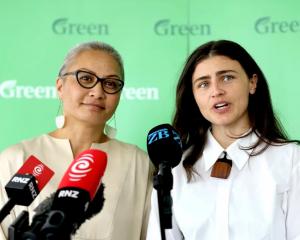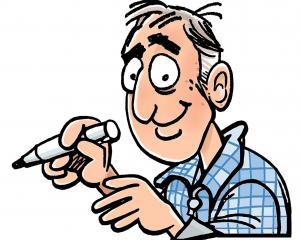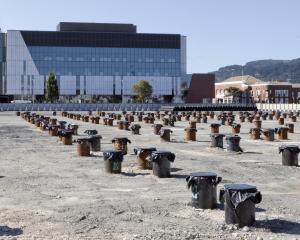This year marks the 30th anniversary of the Homosexual Law Reform Act, the legislation that decriminalised sexual relations between men aged 16 and over.
The long and ugly campaign towards its adoption was supported by lesbians, who were often also victims of social discrimination (although sex between women was not illegal), and it became something of a watershed in the fight for human rights in general.
As a nation we have moved on from the days when we locked up men for having consensual sex with each other, when it was feared such permissive legislation might open the floodgates to the disintegration of family and society, when politicians (former National MP Norman Jones in 1985) would publicly tell homosexuals and their supporters to ‘‘go back into the sewers''.
We now live in a society where politicians (National MP Maurice Williamson in 2013) can stand up proudly in Parliament to speak in favour of marriage equality, laud the ‘‘big gay rainbow'' across their electorate and vote overwhelmingly to pass legislation that allows two people who love each other to have that recognised through marriage.
We now live in a society in which people of all ages can and do openly identify themselves as lesbian, gay, bisexual, transgender, queer, intersex and asexual.
The ever-evolving abbreviation LGBTQIA has entered mainstream usage, and New Zealand schools are even installing ‘‘gender-neutral'' toilets for pupils who feel uncomfortable using bathrooms designated ‘‘male'' or ‘‘female''.
Of course, even though much has been enshrined in law and public policy, there are still those who face discrimination and difficulties as a result of their gender or sexual identity, who may have great personal struggles to accept who they are, because they fear what others will say, think and do.
Religion has proved an intractable barrier for some, although some churches and religious leaders have embraced the changes and challenges and made - or kept - acceptance as their guiding principle. But latent and overt phobias still abound in various areas of society.
There are those who cannot accept others for who they are, who argue that love, gender, sexuality and identity are clear cut, that there is either ‘‘right or wrong'', ‘‘good or evil'', ‘‘natural or unnatural'', ‘‘normal or other'', ‘‘black or white''.
There are those who might see shades of grey, while others are able to appreciate the full diverse spectrum of humanity.
For a country with a relatively short history, we have been quick off the mark and chalked up some impressive social milestones. It is inevitable there will be hurdles along the way. And sometimes it may seem as if we haven't come far at all.
New Zealand was the first country to give women the vote, and the first country in the Asia-Pacific region to pass marriage equality legislation, but even as International Women's Day was marked recently,
females in this country were still fighting for basic pay equity and seniority, for example. No wonder a variety of groups and individuals still find themselves marginalised, too.
As a society, we may be largely out of the closet, and the sewers, but not the woods quite yet - despite the best efforts of ‘‘rainbow warriors'' like Labour MP Fran Wilde, current Labour MP Louisa Wall and even Mr Williamson (although sadly a sexist, offensive speech at the end of last year took something of the shine off his equality poster boy credentials).
There is still some way to go before we stop seeing difference and see only people. When we do, that will be real progress - and something to be truly loud and proud about.












